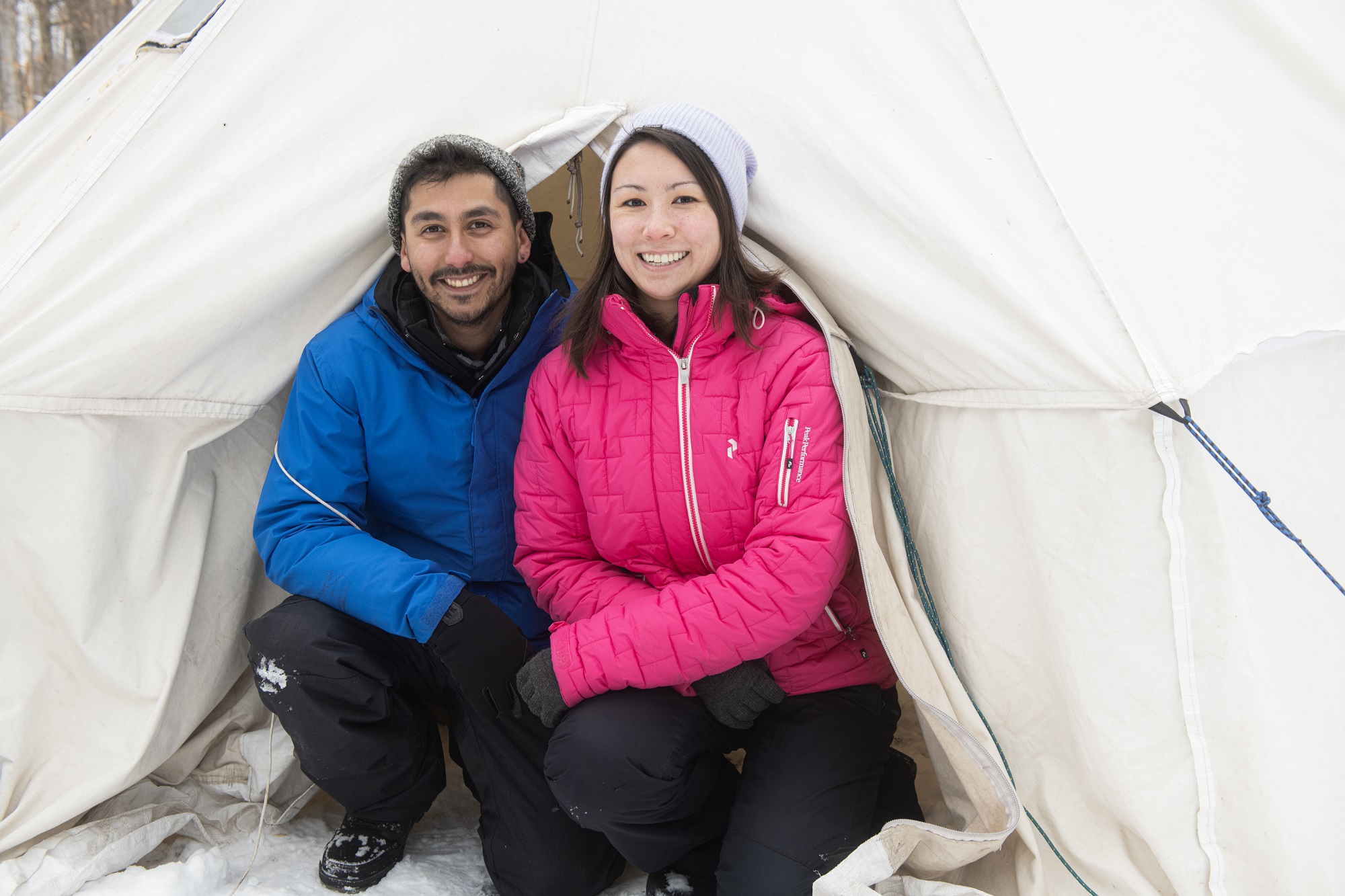Today’s post comes from Connor Oke, an Ontario Parks marketing intern.
We live in a world that demands a lot of us.
Canadians work overtime at higher rates than they did 25 years ago. At the same time, we spend more hours in front of screens and on social media, which are linked to increased anxiety and distractedness. We also get less sleep than we did 15 years ago.
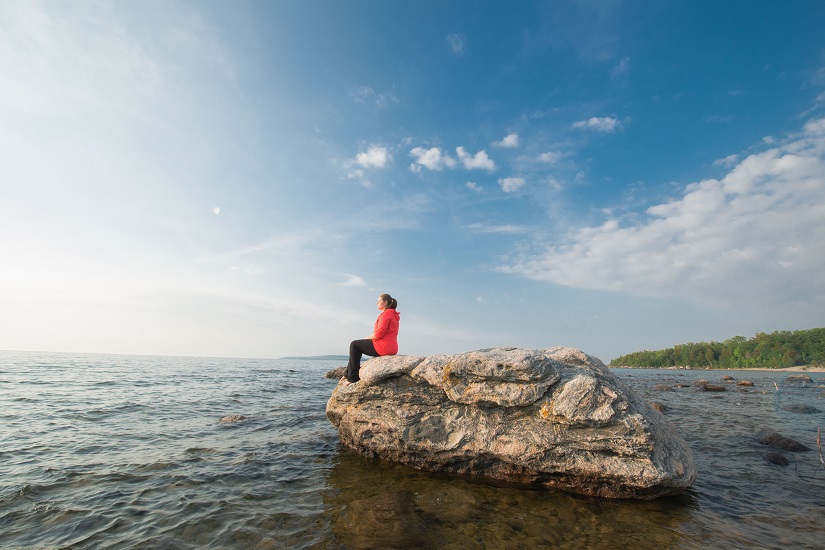
The natural world is a refuge from the hurriedness of everyday life. Spending time outdoors helps us destress and keeps us healthy. One of the ways it does that is by helping us slow down, take it easy, and appreciate the simple things in life.
Here are four of the ways that camping helps us do that:
1. Living on “camp time”
“We’re on camp time.”
How many times have you said this on your camping trips over the years?
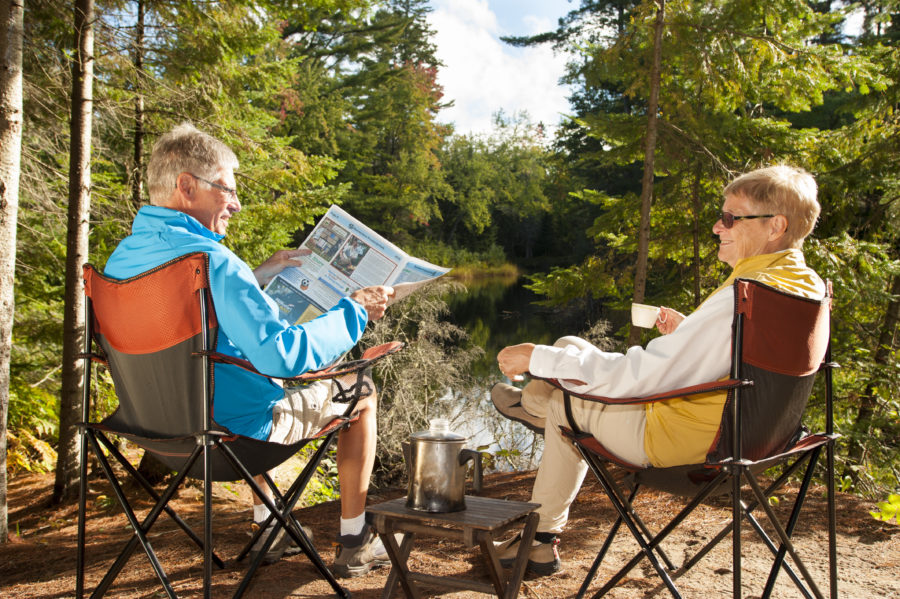
It’s true: one of the best parts of camping is the chance to live without a schedule. You can sleep a little longer than normal to recharge, or even just sit for a couple hours, sipping coffee and watching the water.
You don’t need to be anywhere else.

While living on a schedule is a good way of managing stress in a busy life, not needing one for a while at a campground can be even better. In fact, living on “camp time” and being outdoors is linked to better sleep and reduced stress.
Forget about your emails for a while, and enjoy your stay.
2. Reconnecting with friends and family
When life is busy, it’s easy to put our relationships on the backburner. But when you’re camping, sitting around the fire toasting marshmallows, all that matters is that you’re together.
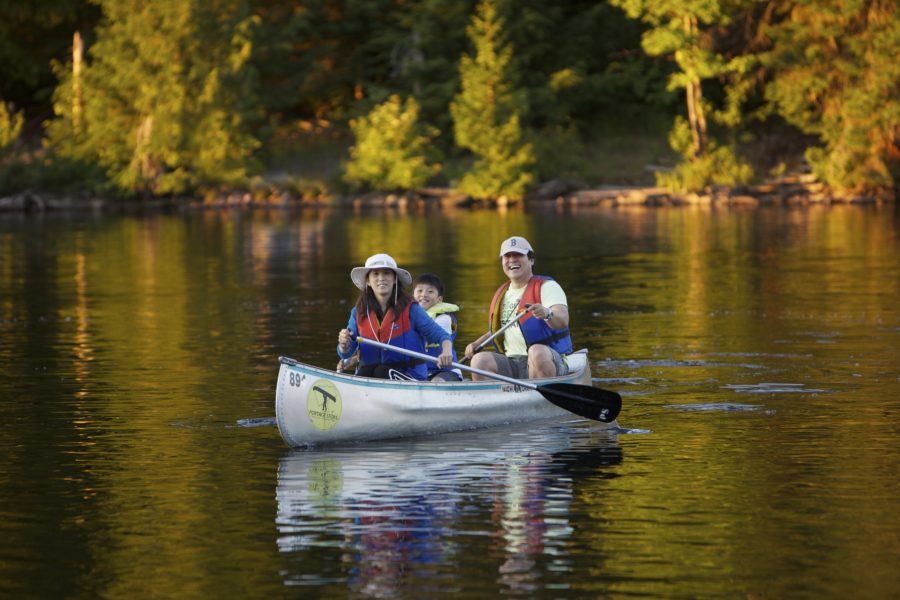
For many, camping trips are the source of cherished memories with friends and family.
There’s that special spot where they learned to fish with Mom. Or there’s the beach where Dad took them to build sandcastles.
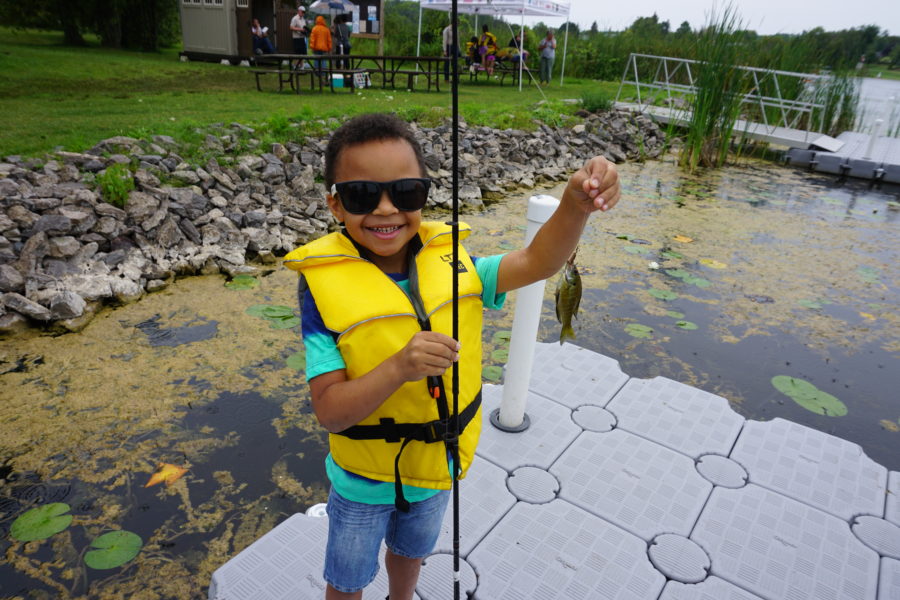
According to the evidence, social connections with friends and family are a vital part of staying healthy. In fact, they’re as important to your long-term health as avoiding smoking and eating well.
3. Lingering over a good meal
There are many benefits to eating slowly, including simply getting more enjoyment from the food. You can savour every bite, talk with friends, and relax.

Consider this: while our obligations may force us to rely on precooked and fast food, camping offers us a chance to take the time to cook and share a meal with others.
Cooking over a campfire or on a barbecue is a longer process, but a more mindful one. It turns what’s normally work into a fun activity, and a chance to enjoy a meal you prepared yourself and to share.
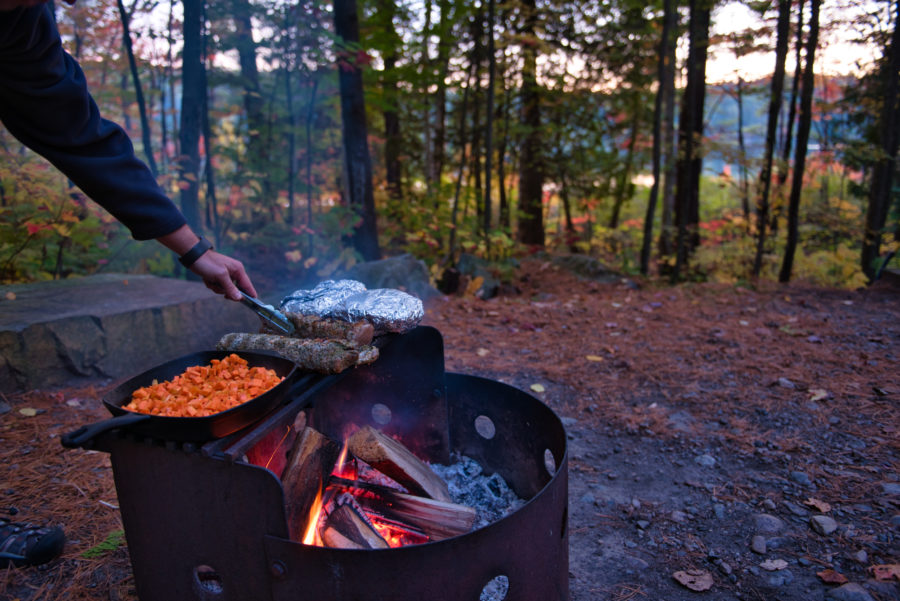
We’ve assembled some of our favourite recipes from our own camping trips, including a hearty winter chili, a grilled fall salad with ribeye steak, and a recipe for campfire trout.
4. Discovery for discovery’s sake
Not all learning needs to have a practical application. For many, learning is a reward in and of itself. And after all, where better to learn about the great outdoors than by going there yourself?

Ontario Parks’ Discovery Program is designed to inspire a love of learning about the wild in children that will last them the rest of their lives.
But learning and play are also important for adults. It keeps our brains active and working, inspires creativity, and simply makes us feel good.
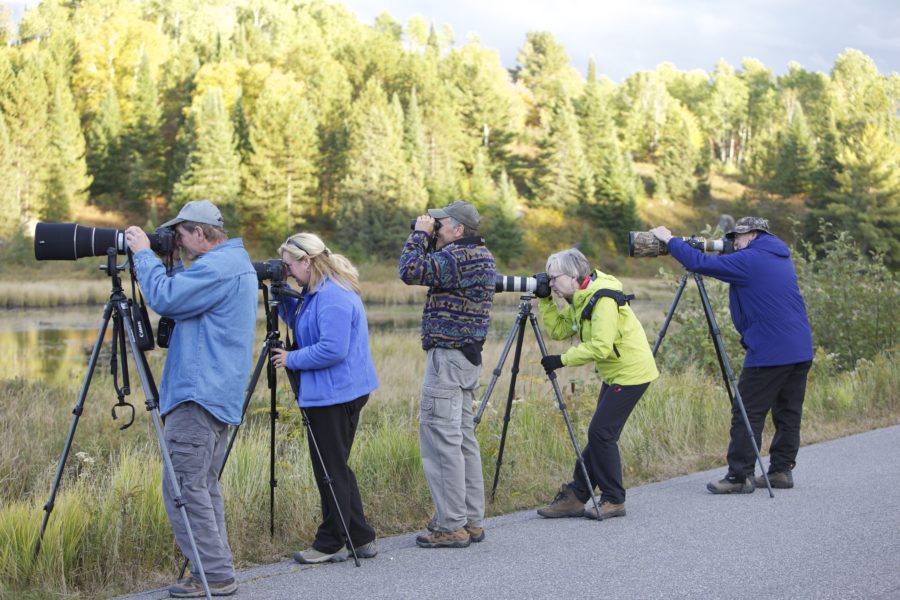
Discovering new things simply because it’s fun is a great way to reconnect with the joy of learning.
So take it easy for a while
Spending time outdoors is a fantastic way of staying healthy. It’s also a chance to reconnect with what’s important in life: friends and family, enjoying the simple things, and learning new things.
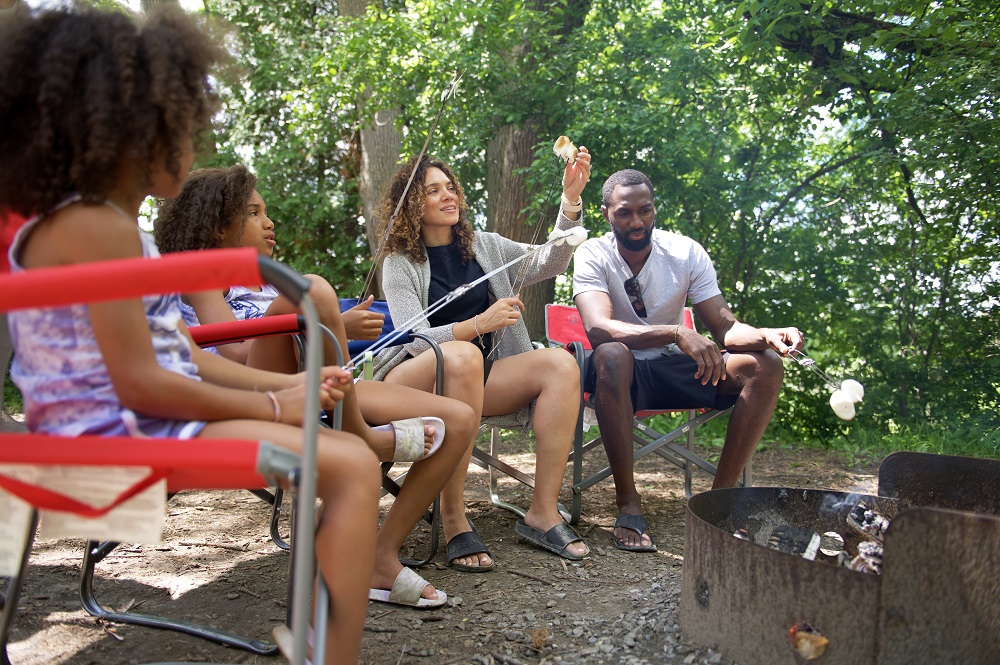
People have known this for hundreds of years. In 1854, Henry David Thoreau wrote in his book Walden, “I went to the woods because I wished to live deliberately, to front only the essential facts of life, and see if I could not learn what it had to teach, and not, when I came to die, discover that I had not lived.”
Read more about the many benefits of time in nature here.


